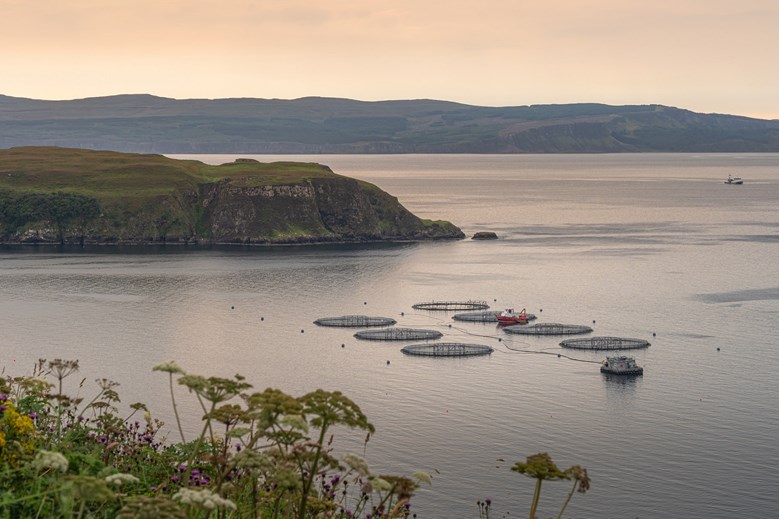Call to better understand fish farm emissions

Cost-effective ways could be found to reduce the emission intensity of farmed Scottish salmon.
Farmed Scottish salmon has a similar carbon footprint to chicken meat, a study by SRUC has found.
Farmed salmon produces the same amount of greenhouse gases per kilogramme of product to chicken meat produced in a conventional UK broiler unit.
Overall, the Scottish farmed salmon sector was estimated to emit 616 thousand tonnes of carbon dioxide equivalent in 2019, mainly from feed production.
While farmed salmon’s carbon footprint is lower than that of pork, beef or lamb, researchers from SRUC’s Rural Policy Centre said cost-effective ways to reduce the emission intensity of the industry could be identified to help meet Scotland’s climate change targets.
These include improved genetics, health and feeding, including the substitution of high-carbon feed materials.
Globally, the fish farming sector generated 263 million tonnes of carbon dioxide equivalent in 2017 - 0.49 per cent of GHG emissions produced directly by human activity.
Researchers said while aquaculture emissions are modest, it is a rapidly growing sector with Scotland producing nearly 204,000 tonnes of Atlantic salmon in 2019 - the highest annual recorded level of production.
Dr Michael MacLeod, who led the research, undertaken as part of the Scottish Government’s Strategic Research Programme, said: “In Scotland, salmon farming is an important and rapidly expanding sector.
“However, to enable sustainable expansion of the sector, we need to understand its contribution to greenhouse gas emissions and how it can be mitigated.
“While there is a lot more to sustainability than greenhouse gas emissions, they are an important part of the picture. We think that basic biophysical modelling approaches can help the sector to identify the most cost-effective improvement options, thereby enabling more sustainable growth.”
For more information, visit our Rural Policy Centre pages.
Posted by SRUC on 15/09/2021
